The 2025 UK-China Transition Finance Seminar Concluded Successfully
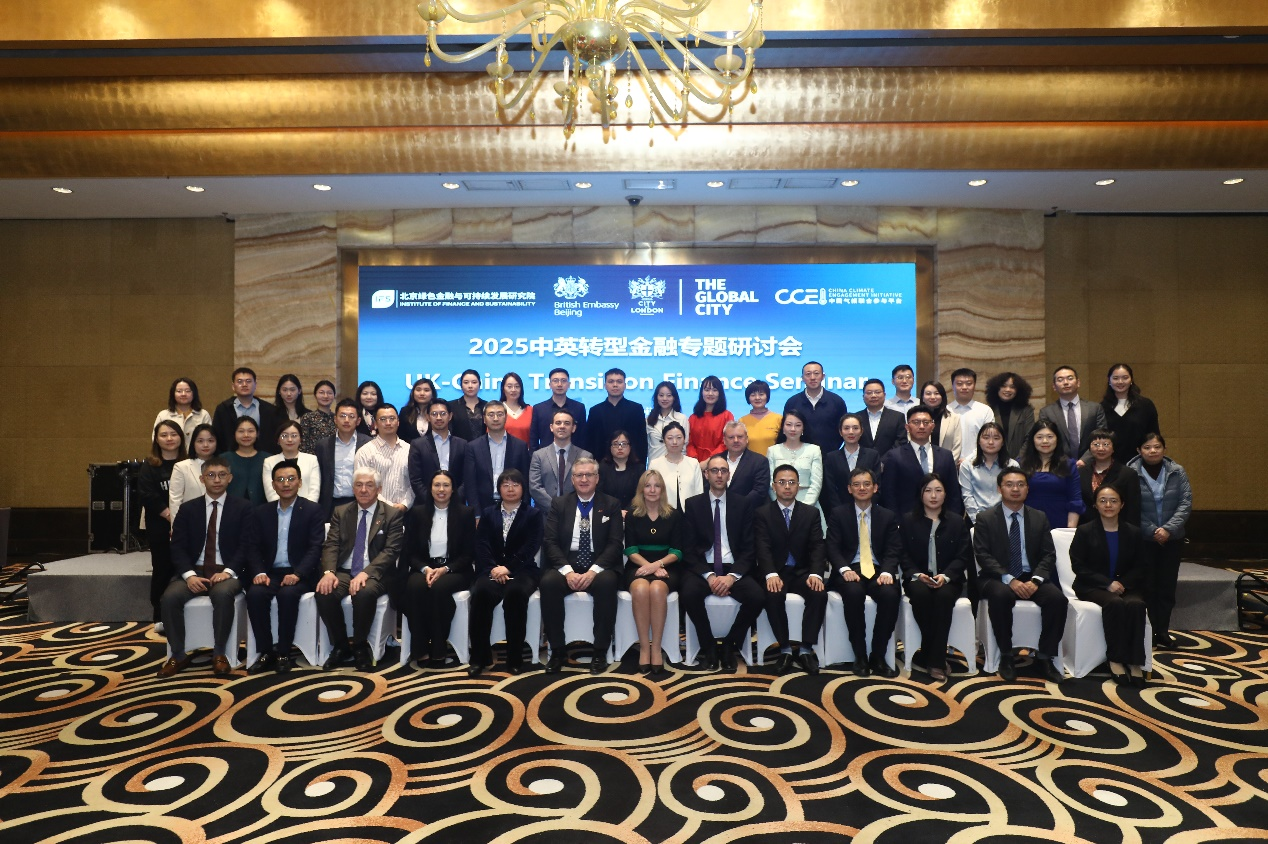
The 2025 UK-China Transition Finance Seminar was successfully held in Beijing on March 19. The event was co-hosted by the Beijing Institute of Finance and Sustainability (IFS), the British Embassy Beijing, the City of London Corporation, and the China Climate Engagement Initiative (CCEI). In response to the outcomes of the 11th UK-China Economic and Financial Dialogue (EFD), the seminar brought together representatives from government and financial regulatory bodies, various financial institutions, and third-party organizations from both China and the UK. Participants engaged in in-depth discussions on the theme of "Promoting UK-China Transition Finance Development and Cooperation." The seminar also served as a preparatory meeting for the establishment of the UK-China Transition Finance Workstream.
The event was held in a hybrid format and attracted nearly 160 participants. The seminar was moderated by Mr. ZHAO Lijian, Director of the Greentech Innovation and Investment Center at IFS and Joint Secretary-General of the CCEI.
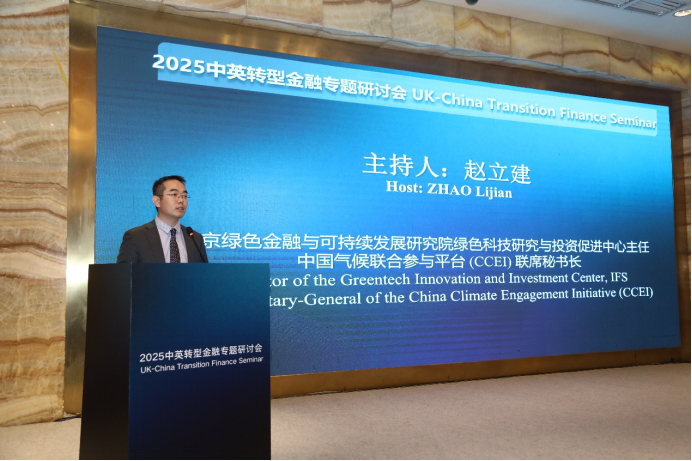
/Opening Remark/
The seminar opened with keynote remarks delivered by senior representatives from both China and the UK. Speakers included Ms. ZHANG Bei, Deputy Director General of Research Bureau of the People’s Bank of China; Alderman Alastair King, Lord Mayor of the City of London; Dr. MA Jun, President of the Beijing Institute of Finance and Sustainability (IFS); Mr. Michael Harvey, Counsellor for Financial and Professional Services at the British Embassy Beijing; and Sir Charles Bowman, former Lord Mayor of the City of London.
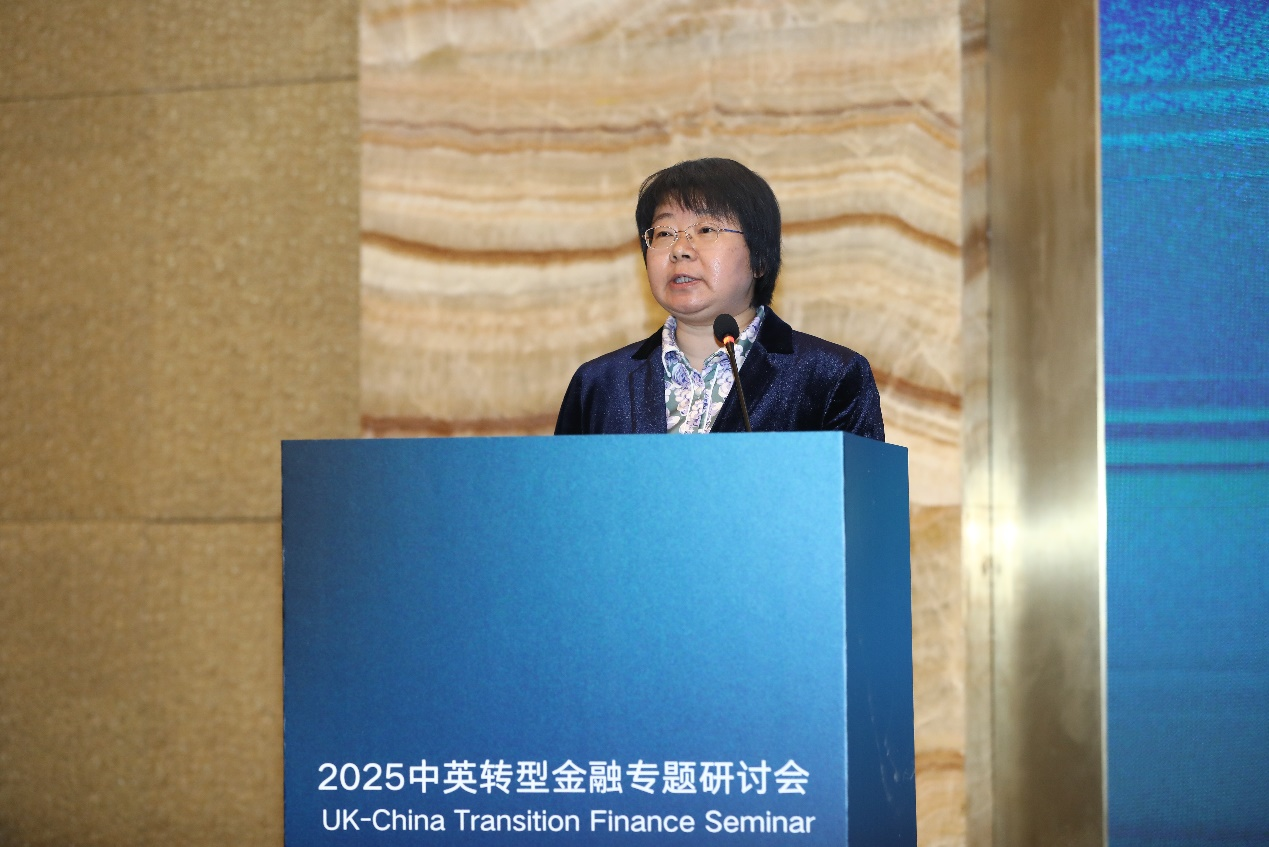
Ms. ZHANG Bei, Deputy Director General of Research Bureau of the People’s Bank of China(PBOC), highlighted that the G20 Sustainable Finance Working Group's transition finance framework has significantly advanced the global development of transition finance. Compared to green finance, transition finance is more complex and requires special attention to several key issues:
First, enhancing information disclosure is critical to guiding enterprises in developing credible transition plans and preventing “greenwashing.” Financial institutions can leverage their expertise to assist corporate clients in formulating low-carbon transition strategies. Second, the challenges faced by small and medium-sized enterprises (SMEs) in the transition process must be addressed. She recommended simplifying disclosure standards, utilizing digital technologies, and leveraging the roles of financial institutions and industry leaders to ease the disclosure burden on SMEs. Third, promoting a just transition is essential, which involves evaluating and supporting industries, regions, and communities affected by the transition process.
Ms. Zhang emphasized that the PBOC places great importance on the practical development of transition finance. Key efforts include: promoting the development of industry standards for transition finance and supporting local pilot programs; enhancing sustainability disclosures by revising disclosure guidelines for financial institutions based on ISSB standards and China’s national context; and improving policy incentive mechanisms by optimizing the carbon reduction support tool and strengthening green finance performance evaluations of financial institutions, thereby encouraging greater support for transition-related economic activities.
She concluded by expressing her hope for deepened cooperation with the UK to promote the alignment and mutual recognition of international transition finance standards, enhance global capital flows, and support green and low-carbon economic development toward achieving carbon neutrality.
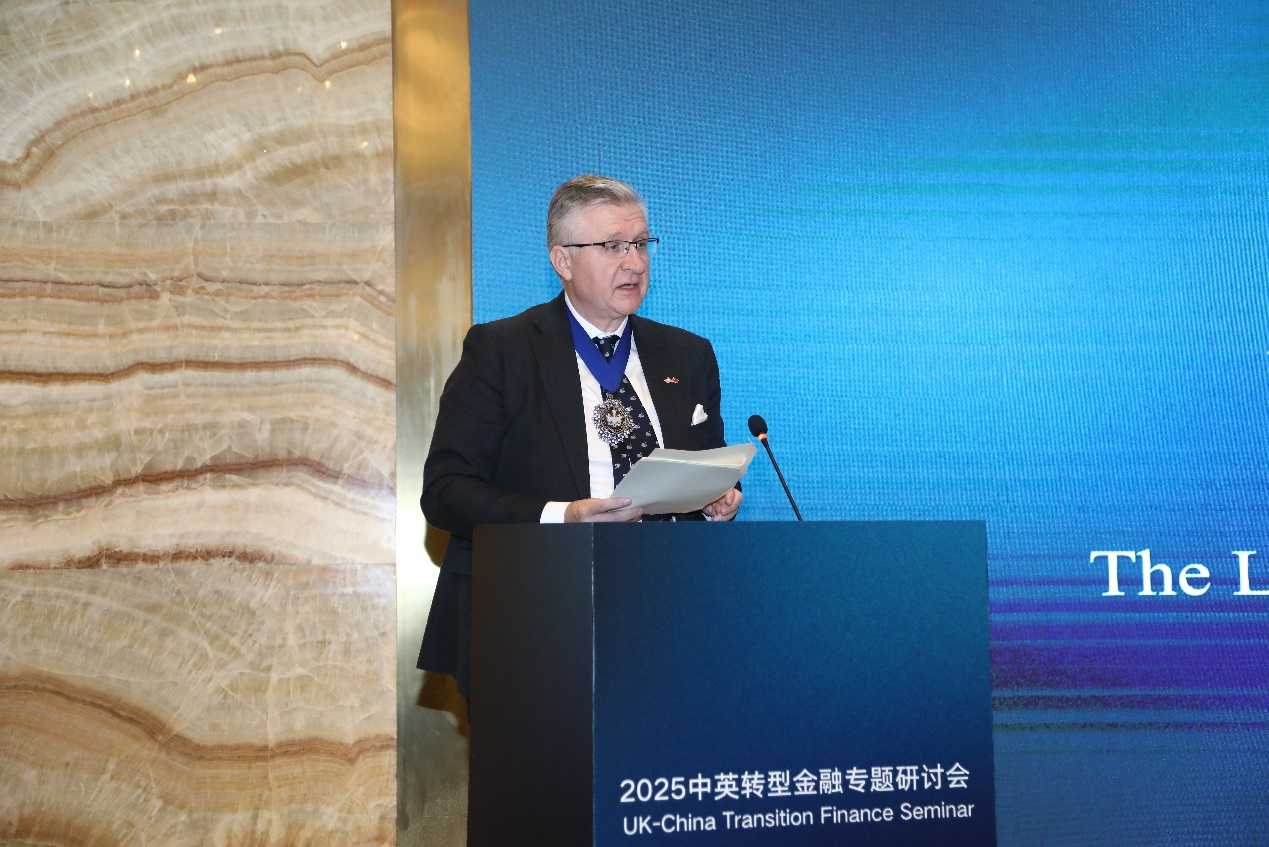
Alderman Alastair King, the Lord Mayor of the City of London, emphasized London’s role as a global hub for financial and professional services in his address. He noted that his mayoral theme for the year is “Unlocking Growth,” with a focus on driving sustainable development and a just low-carbon transition.
He highlighted the strong collaboration between China and the UK in the field of climate finance. By combining the UK’s strengths in financial and professional services with China’s global leadership in renewable energy manufacturing, the two countries have the potential to unlock market opportunities exceeding £1 trillion. He also pointed out that London has become a major listing venue for Chinese financial institutions issuing green bonds, with a total issuance exceeding USD 10 billion. Looking ahead, he expressed hope for further UK-China collaboration in mobilizing private capital and strengthening green investment and financing mechanisms. He looked forward to hosting this year’s UK-China Green Finance Taskforce meeting in London and called on participants to actively contribute ideas and efforts to jointly advance the development of global transition finance.

Dr. MA Jun, Chairman of China Green Finance Committee, President of Beijing Institute for Finance and Sustainability(IFS), and co-chair of UK-China Green Finance Taskforce, delivered a keynote address at the seminar.
He began by reviewing the progress of UK-China cooperation in green finance since 2016, highlighting key joint initiatives such as the co-founding of the G20 Sustainable Finance Working Group, the UK-China Green Finance Taskforce, the Green Investment Principles (GIP) platform, the UK-China Sustainable Disclosure Workstream, and the catalytic role in launching CCEI. In line with the outcomes of the UK-China Economic and Financial Dialogue, Dr. Ma announced the official launch of the “UK-China Transition Finance Workstream” under the framework of the UK-China Green Finance Taskforce, with Bank of Communications appointed as the first lead institution of China. Dr. Ma noted that transition finance in China has made encouraging progress in recent years. Key developments include the publication of the G20 Transition Finance Framework (co-chaired by China), the PBOC's industry-specific transition finance taxonomy, local pilot programs, and the steady expansion of lending volumes. He emphasized that transition finance is expected to be a major driver and breakthrough point for the next phase of green finance development.
However, he acknowledged that transition finance still faces practical challenges, particularly in standard-setting, incentive mechanisms, data tracking, and management frameworks. Drawing on international experience—such as that of the UK—will be key to overcoming these obstacles. Dr. Ma stressed the necessity and timeliness of establishing the Transition Finance Workstream and called for active participation from all parties. He encouraged collaboration among financial institutions, companies, and third-party organizations from both countries to jointly advance product innovation and capacity building, contributing meaningfully to bilateral financial cooperation and global green finance development.
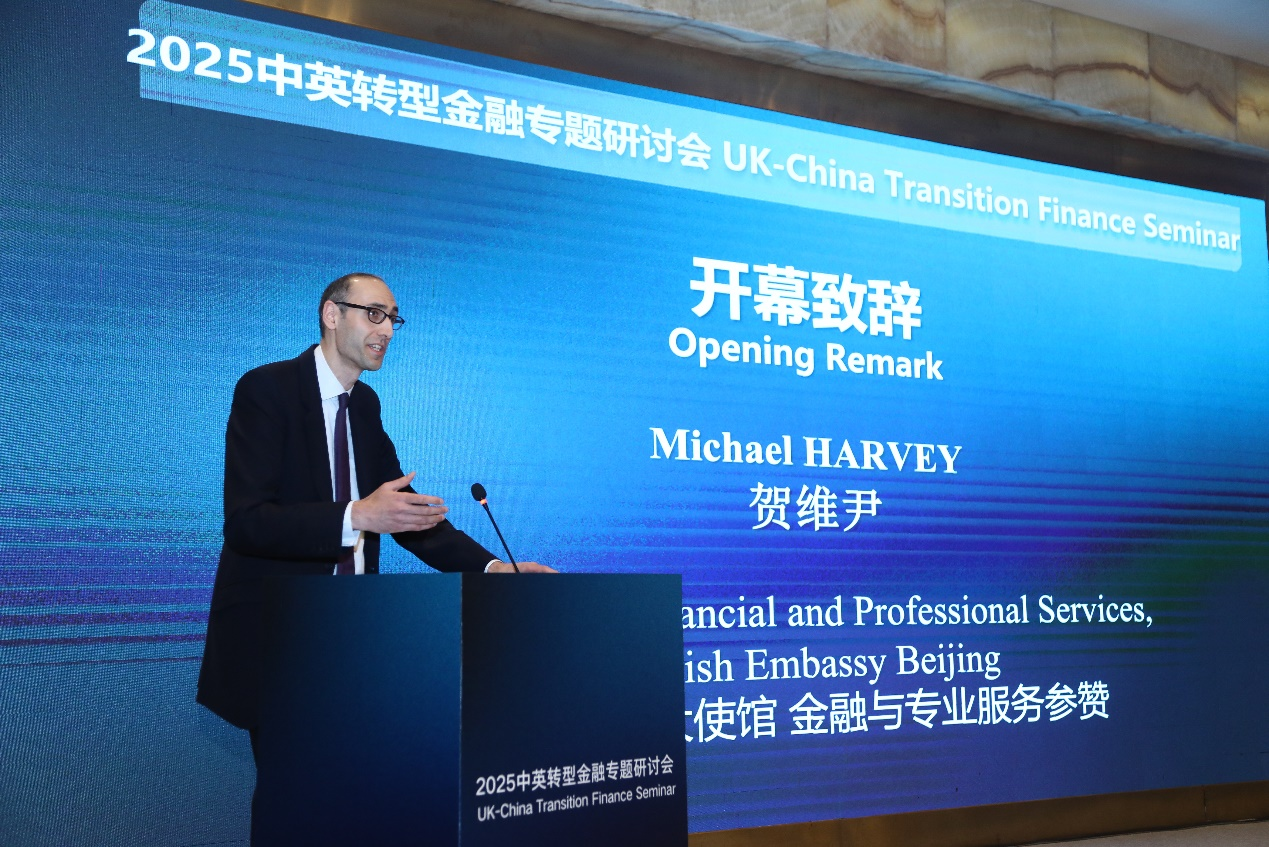
Mr. Michael Harvey, the counsellor of Financial Professional Services, commented in his opening remark that UK-China green finance cooperation has gone from strength to strength over the last decade and is now one of the most mature areas of the bilateral relationship. Among the 69 outcomes of the UK-China Economic and Financial Dialogue held in this January, a significant portion related to green finance, underscoring its central role in the two countries’ cooperation.
Mr. Harvey emphasized that in the face of climate change, transition finance is critically important—not only for developing green industries, but also for enabling high-carbon emission sectors to shift toward a low-carbon economy. Transition finance, he said, serves as a vital bridge between today’s high-emissions economy and a sustainable future. He highlighted the UK’s leadership in this field, including the introduction of the Transition Plan Taskforce (TPT) framework initiated by HM Treasury in 2022, the publication of supporting guidance in 2023, and continued collaboration with IFS to support China’s transition planning and finance initiatives. The UK has also established a Transition Finance Market Review, aiming to position itself as a global hub for transition finance.
Looking ahead, Mr. Harvey expressed strong optimism for deepening UK-China cooperation in transition finance, noting its potential not only to inject fresh momentum into both economies, but also to serve as a key driver of global green transformation.

Sir Charles Bowman, former Lord mayor of the City of London and co-chair of UK-China Green Finance Taskforce, delivered opening remarks via video. He expressed his honor in continuing to support UK-China collaboration on sustainable development in his new role.
Sir Charles noted that with global average temperatures surpassing 1.5°C for the first time, the urgency to accelerate decarbonization has never been greater. Both China and the UK have set ambitious carbon neutrality and net-zero targets, and financial institutions will play a critical role in achieving them—particularly in supporting the transition of hard-to-abate, high-carbon sectors. In this context, transition finance is essential.
He emphasized that China is the world’s largest investor in the energy transition, while London brings extensive experience in policy development and capital mobilization. The two sides thus have enormous potential for deeper cooperation.
Sir Charles welcomed the announcement made during the 2025 UK-China Economic and Financial Dialogue to establish two new workstreams—one on transition finance and another on nature and biodiversity finance—and encouraged broad engagement from all sectors. He also expressed gratitude to his predecessor, Sir Roger Gifford, for his contributions, and looked forward to working closely with Dr. MA Jun and stakeholders from both countries to advance green finance development.
/ Keynote Speech /
During the keynote sharing session, Bank of Communications and HSBC, representing the Chinese and UK sides respectively, shared their insights and experiences on the development of transition finance.
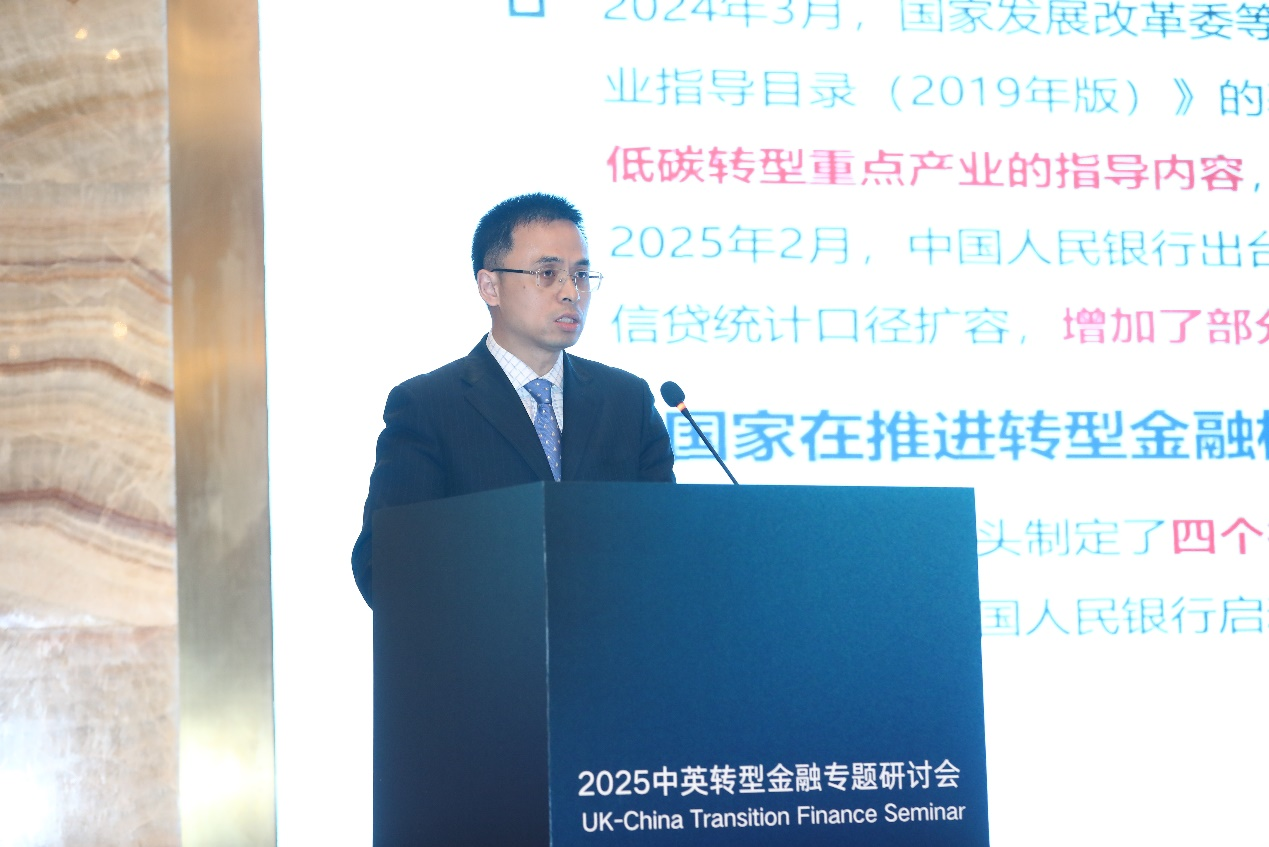
Mr. QIN Hua, Deputy General Manager of Credit Management Department, Bank of Communications (BOCOM), delivered a keynote speech titled “Innovative Development and Practice of Transition Finance” on behalf of Chinese financial institutions. He began by outlining recent developments in China’s national and local transition finance policies and shared BOCOM’ practical exploration in this field in detail. Mr. Qin noted that both national and subnational policies have increasingly emphasized the development of transition finance, promoted the formulation of relevant standards, and encouraged stronger alignment between green and transition finance. In line with these policy directions, BOCOM has actively advanced its transition finance practices.
He highlighted that BOCOM has embedded the coordinated development of green and transition finance into its strategic agenda, continuously improving internal mechanisms for promoting transition finance. The bank has led the development of national transition finance standards for the waterborne transport sector, strengthened policy support, and accelerated business implementation. To date, BOCOM has launched transition finance projects across multiple sectors—including shipping, steel, ceramics, chemicals, and agriculture. Notably, it issued the first national transition finance loan for the shipping sector, which was recognized as a model case in China Central Television’s (CCTV) “Finance for a Strong Nation” feature. Mr. Qin also identified key challenges that financial institutions face in developing transition finance, such as high transition risks in carbon-intensive sectors, limited transition capacity among some enterprises, and the lack of diversified financial products. He proposed several recommendations: establishing long-term mechanisms and effective incentives, strengthening the policy and standards framework, enhancing disclosure and third-party verification, improving information-sharing mechanisms, and upgrading risk management and technological support.
In conclusion, he affirmed that BOCOM will fulfill its role as the co-lead institution of the UK-China Transition Finance Workstream, enhance coordination among government, financial institutions, and enterprises, and promote the high-quality development of transition finance.
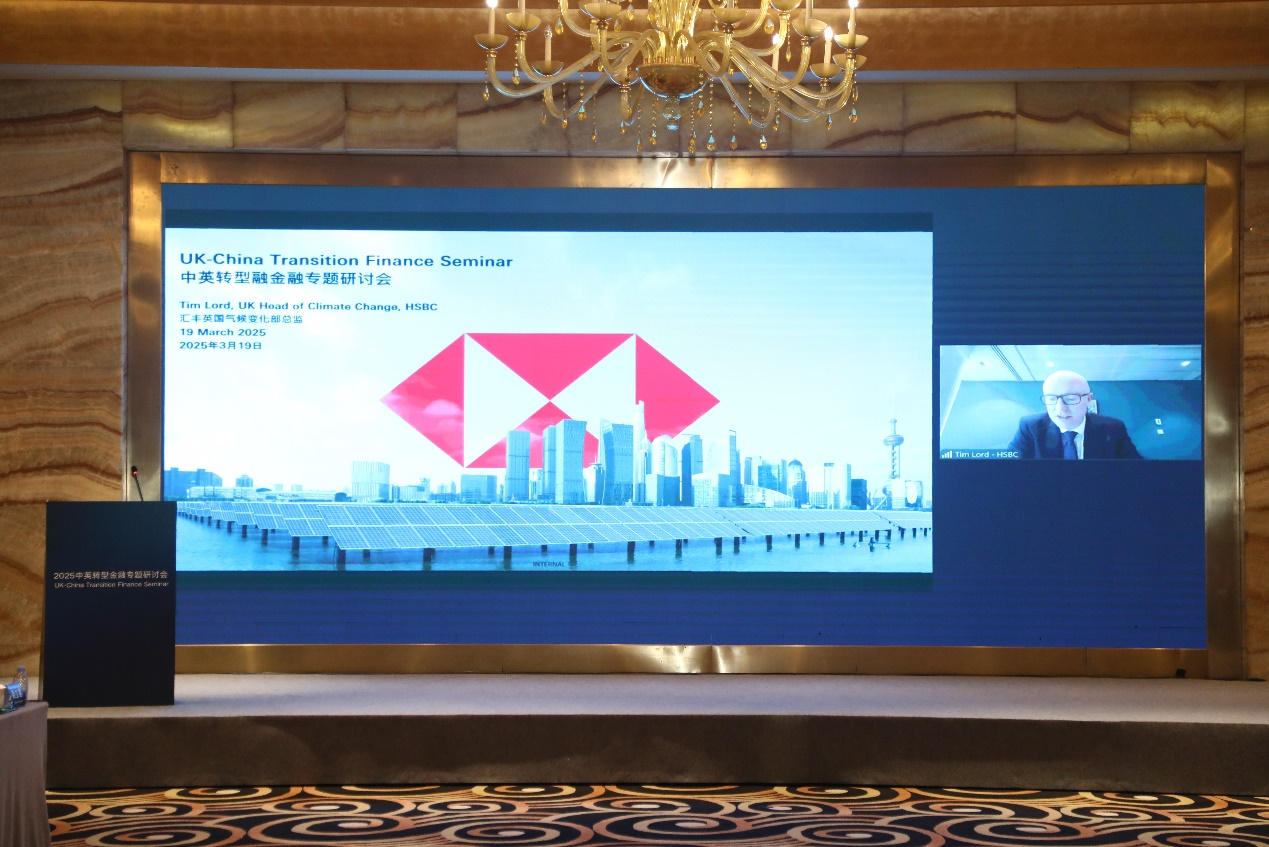
Mr. Tim Lord, Head of Climate Change at HSBC UK, delivered a keynote speech titled “Development and Practice of Transition Finance in the UK”.
Mr. Lord noted that the UK has committed to achieve net-zero emissions by 2050 and is actively advancing the transition across key sectors including power, agriculture, transport, and energy. However, significant challenges remain—particularly in bridging the financing gap, ensuring policy continuity, and overcoming technological barriers.
To address these issues, the UK has established a clear and credible transition plan framework, and is promoting policy coordination, blended finance instruments, and targeted funding support for real economy entities. He introduced HSBC’s three main areas of focus in supporting the economic transition:
· Assisting clients in developing transition plans and identifying transition opportunities;
· Providing customized financial solutions to support their transition;
· Mobilizing capital toward sustainable infrastructure and climate solutions.
Mr. Lord emphasized that there is strong potential for deeper UK-China collaboration in defining decarbonization pathways for high-emitting sectors, designing market-based transition incentives, and enhancing cooperation among financial institutions. He called for greater alignment on the scope and definition of transition finance between the two sides.
He concluded by stating HSBC’s readiness to share the UK’s experience with Chinese counterparts, while also learning from China’s policy practices, in order to jointly fulfill the transition finance objectives set out in the UK-China Economic and Financial Dialogue.
/ Thematic Panel /
Subsequently, Bank of Jiangsu, Schroders Capital, and IFS delivered thematic presentations from different perspectives, sharing insights and practices on key issues in transition finance.
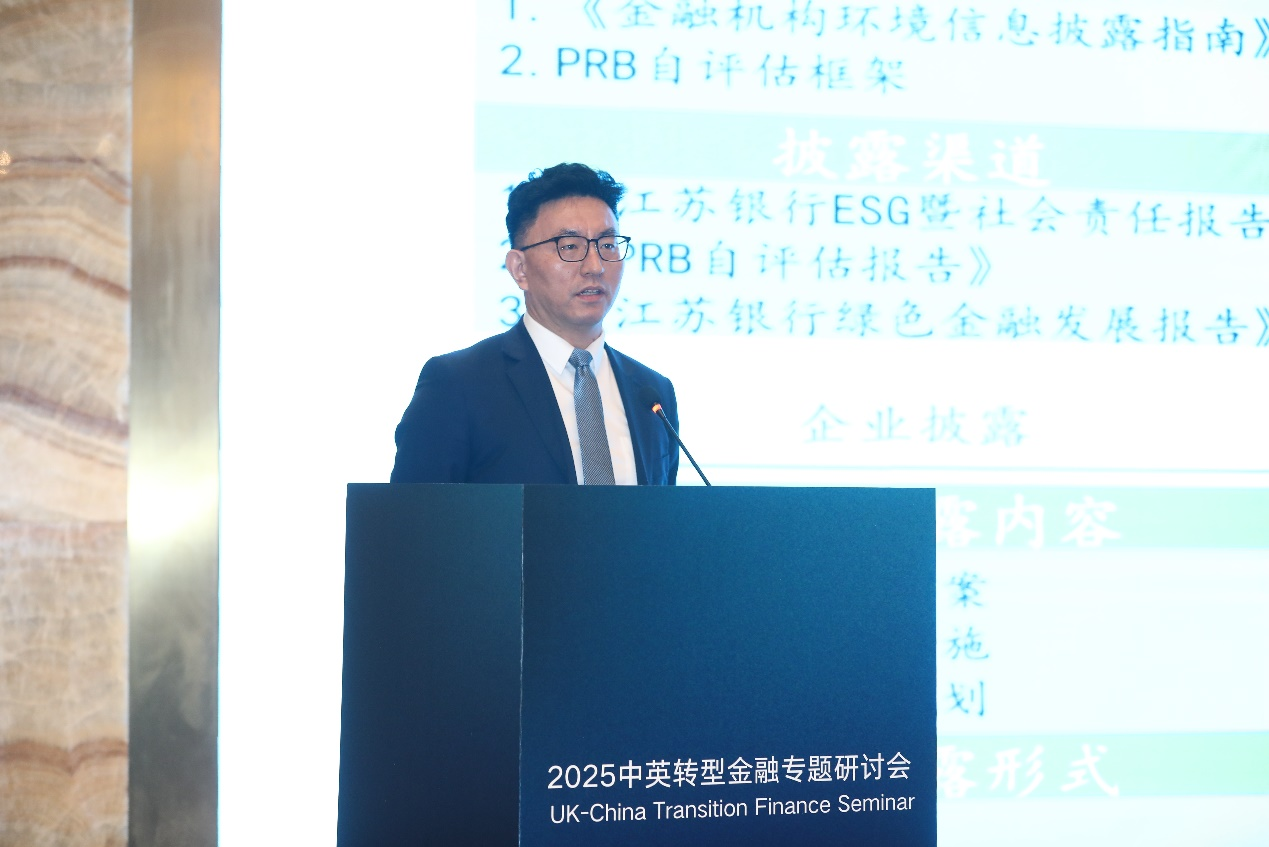
Mr. DONG Shanning, Deputy General Manager of the Green Finance Department and Deputy General Manager of the Corporate Business Department, Bank of Jiangsu, delivered a presentation titled “Transition Finance Development from the Perspective of Commercial Banks.”
He noted that in the absence of unified standards, Bank of Jiangsu developed its own transition finance identification and assessment framework in 2023. This framework covers three dimensions—industry, client, and product—and evaluates transition performance through energy efficiency benchmarks, carbon credit ratings, and ESG ratings. To date, the bank has conducted ESG ratings for over 10,000 enterprises and is gradually integrating these assessments into its credit decision-making and risk management processes. The bank has also conducted stress testing and is exploring the development of transition scenario pathways. On disclosure, Bank of Jiangsu has published multi-level reports, including its ESG report, Principles for Responsible Banking (PRB) self-assessment report, and a green finance development report. In terms of products, the bank has promoted innovation in transition finance offerings, such as ESG-linked loans and financing solutions for certified green factories. It has completed its first transition finance transactions in several sectors, including steel, paper, and shipping. The bank is also involved in building Jiangsu Province’s regional transition entity certification mechanism to support the implementation of local policies.
Mr. Dong also acknowledged ongoing challenges in the field, including the lack of standardized transition criteria, unclear technological pathways, and insufficient risk assessment tools. Looking ahead, he stressed the need to strengthen the policy framework, advance standardization across industries, and enhance risk management and product innovation through robust data systems and technological support.

Mr. PENG Yuyu, Head of China Renewable Infrastructure for Schroders Capital, delivered a presentation titled “The Role of Financial Institutions in Supporting Industrial and Corporate Low-Carbon Transition.” He introduced Schroders Group’s practical experiences in promoting low-carbon transition in both the UK and China. As one of the world's largest long-term renewable energy infrastructure investment platforms, Schroders Capital’s renewable energy infrastructure team has invested in over 430 wind and solar projects globally, with a total installed capacity exceeding 7.4GW.
He reviewed the evolution of energy transition finance in the UK, where the team played a pioneering role—launching the country’s first publicly traded wind energy trust in 2013 and a private equity solar fund in 2016. These efforts successfully mobilized long-term capital from pension funds and government sources to support renewable energy development. By partnering with utility companies, Schroders Capital established a distinctive “build-sell-operate” closed-loop investment model.
In China, the team focuses on the decarbonization needs of multinational corporations’ supply chains. Through a supply chain decarbonization fund mechanism, it helps anchor companies pool capital across their supply chains to invest in renewable energy assets and acquire environmental attributes. This supports the offsetting of Scope 3 emissions—specifically the Scope 2 emissions of their suppliers. The model offers advantages in capital efficiency, risk diversification, and traceability of carbon assets.
Peng Yuyu emphasized that China’s annual additional renewable energy capacity will require approximately RMB 1 trillion in investment. Institutional investors have a strong appetite for stable-yield assets, and there is a high degree of alignment between asset characteristics and funding demand. This presents enormous potential for future collaboration. Schroders will continue to leverage its professional asset management expertise to support China’s energy transition.
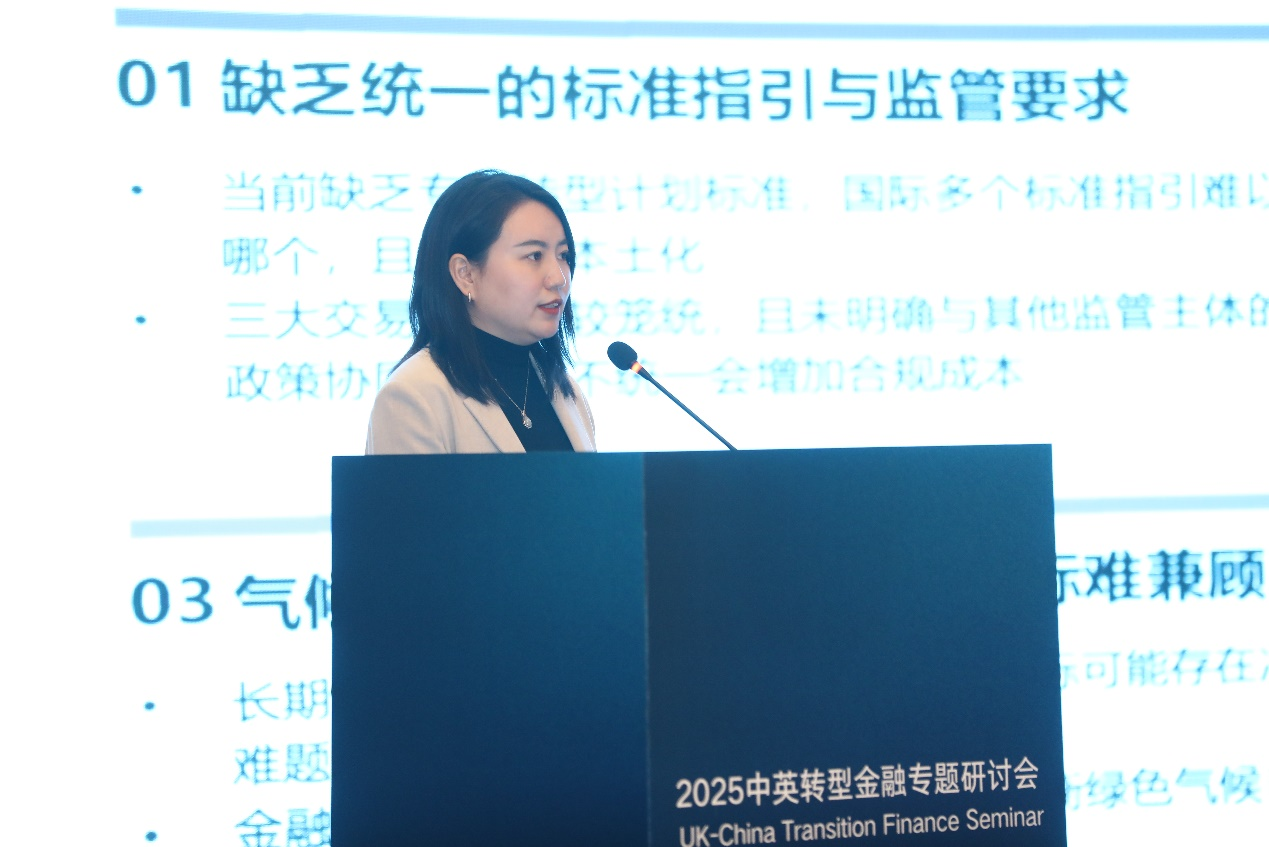
Ms. YANG Jia, Senior Researcher of IFS, presented on “Transition Plan Standards and Practices in the Banking Sector.” She emphasized that for commercial entities, developing climate-related transition plans is essential for achieving climate goals, enabling credible transition finance, and fulfilling disclosure requirements in climate-related information reporting.
Through comparing various international frameworks, she noted that the UK’s Transition Plan Taskforce (TPT) disclosure framework stands out for its high compatibility with both international standards and domestic disclosure requirement , as well as its detailed guidance for different sectors. In fact, in 2024, the ISSB announced that it would integrate the TPT framework into its broader sustainability disclosure guidance.
Through an assessment of major Chinese commercial banks listed on the A-share and Hong Kong Exchange (HKEX), Ms. Yang found that only a small proportion have disclosed standalone transition plans or dedicated chapters, with limited data on financed emissions and few targets set for Scope 3 or financed emissions reductions. The research also included a benchmarking analysis of one Chinese bank against the TPT framework, as well as case studies of best practices in climate disclosures by UK FTSE 100 banks. Ms. Yang stated that while formulating transition plans is becoming an industry trend in China’s banking sector and a basic foundation has been laid, significant challenges remain. These include the lack of unified standards and guidance, the difficulty of setting quantitative targets for financed emissions, the need to balance multiple performance and policy objectives, and growing external economic and geopolitical pressures.
She recommended that policymakers define clear standards, provide data infrastructure and sectoral guidelines, and establish incentive mechanisms. For banks, she advised creating high-level governance mechanisms for transition planning, strengthening the foundation of quantitative data, and developing the climate transition plans tailored to their business models and strategic objectives.
/Open Discussion/
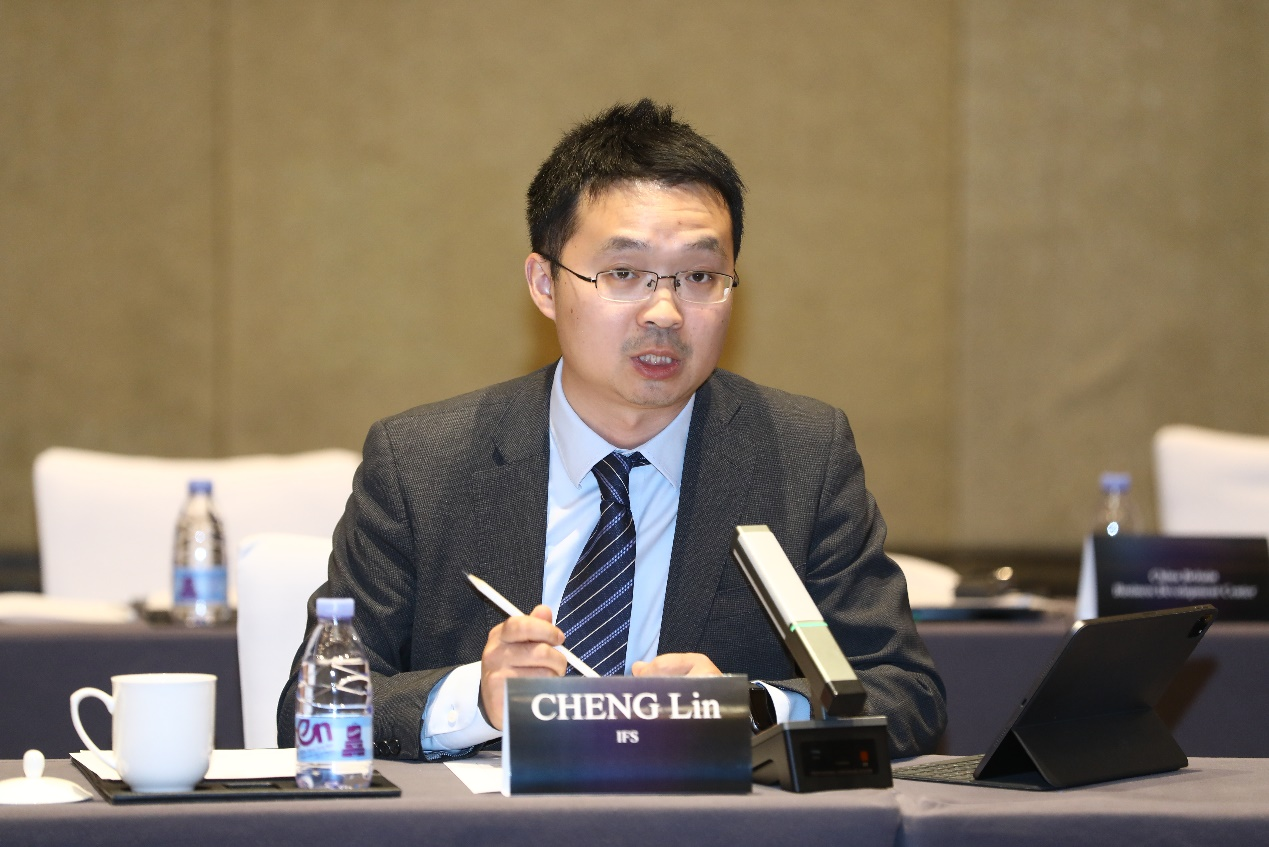
The Open Discussion was moderated by Mr. CHENG Lin, Director of International Collaboration Research Center, IFS. He guided participants through an open exchange around four key questions:
· What are the current practices and directions of innovation in transition finance across financial institutions (including banking and capital markets)How can financial institutions better support industry- and enterprise-level low-carbon transitions
· What are the main challenges currently facing the development of transition finance
· What are your recommendations for the future work direction of the UK-China Transition Finance Workstream
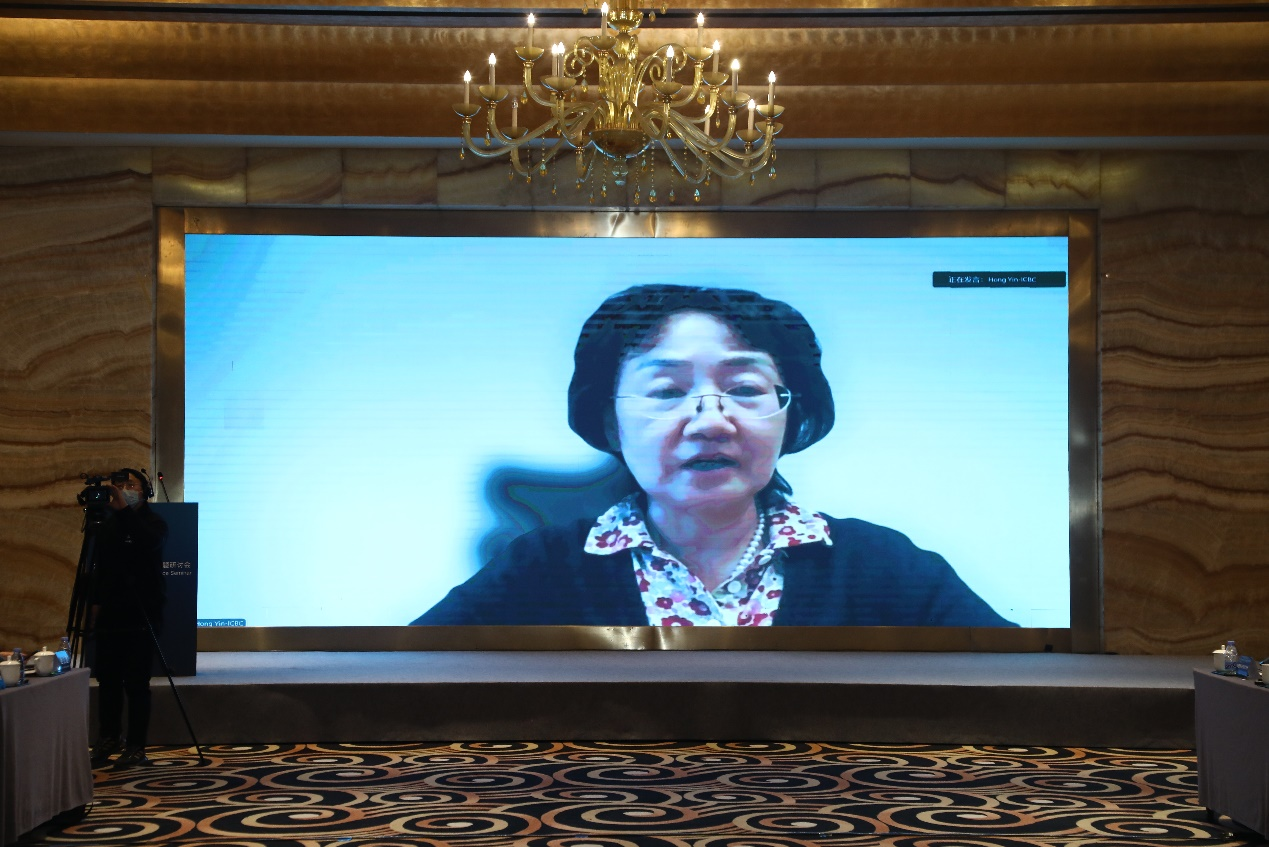
Ms. YIN Hong, Senior Expert of the Credit Approval Department, ICBC, shared the historical development and substantial achievements of the UK-China Sustainable Disclosure Workstream since its establishment in 2017, offering valuable insights for the upcoming UK-China Transition Finance Workstream.
She emphasized that the two working groups share aligned goals and are mutually reinforcing—both aiming to support the green and low-carbon transformation of the economy and society through financial means. On one hand, information disclosure is one of the five pillars of the G20 Transition Finance Framework, making it an integral component of transition finance. On the other hand, within financial institutions’ disclosures, the formulation and publication of transition plans represent a core element of high-quality information disclosure. Ms. Yin recommended that the two working groups strengthen coordination in agenda design, expert engagement, and event organization to promote joint standard-setting and resource sharing.
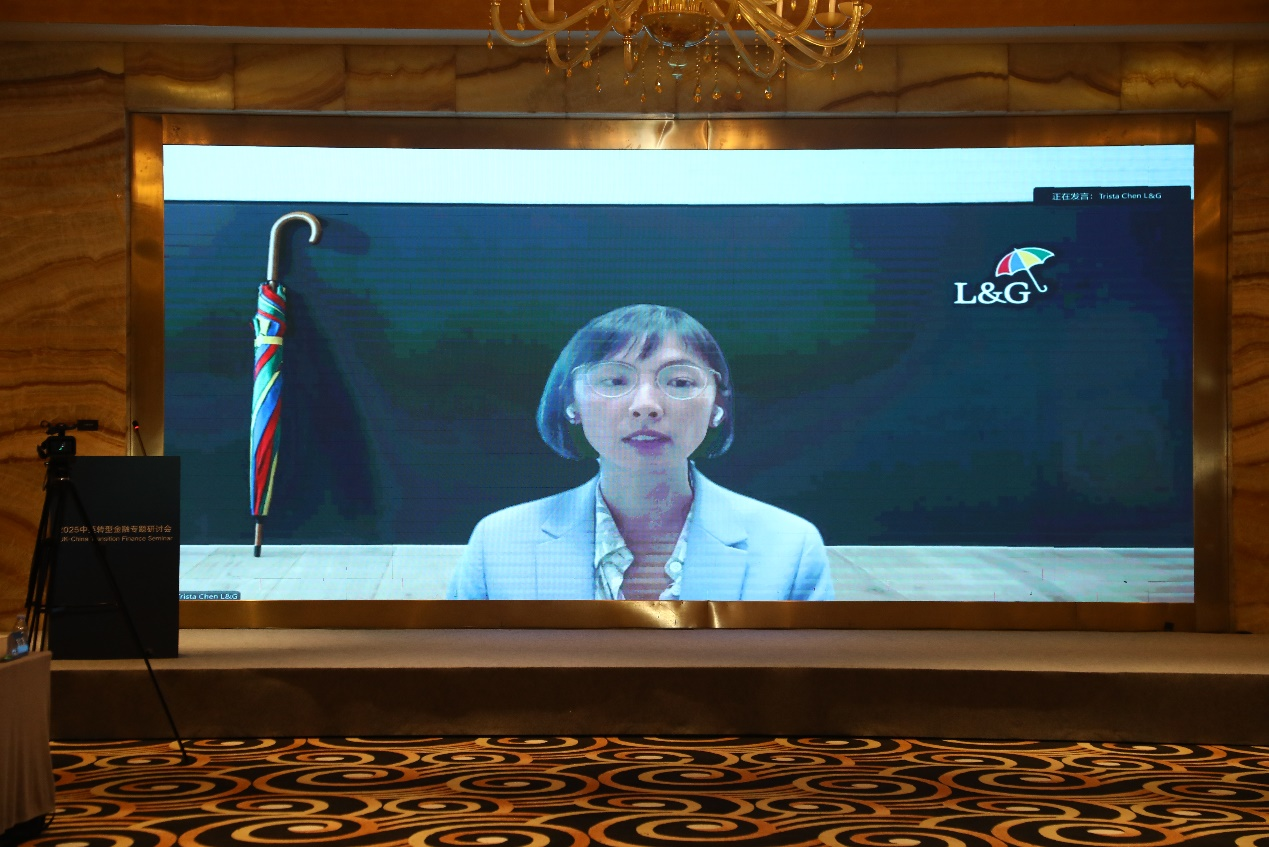
Ms. Trsita Chen, Co-Lead of Global Investment Stewardship at Legal&General Asset Management, shared insights from the perspective of a large, long-term investor on how the group formulates and implements its climate transition strategy.
As one of the first UK institutions to support the TPT, Legal & General has established a net-zero pathway that covers both its own operations and asset management activities. Transition goals have been embedded into the group’s governance structures and post-investment management processes. Ms. Chen emphasized that as both an asset owner and manager, Legal & General regards active ownership as a core strategy—leveraging climate impact assessments and engagement with portfolio companies to jointly advance the decarbonization transition. She recommended that China and the UK strengthen collaboration in areas such as regulatory alignment, standard harmonization, and capacity building, in order to mobilize long-term capital more effectively for climate transition.
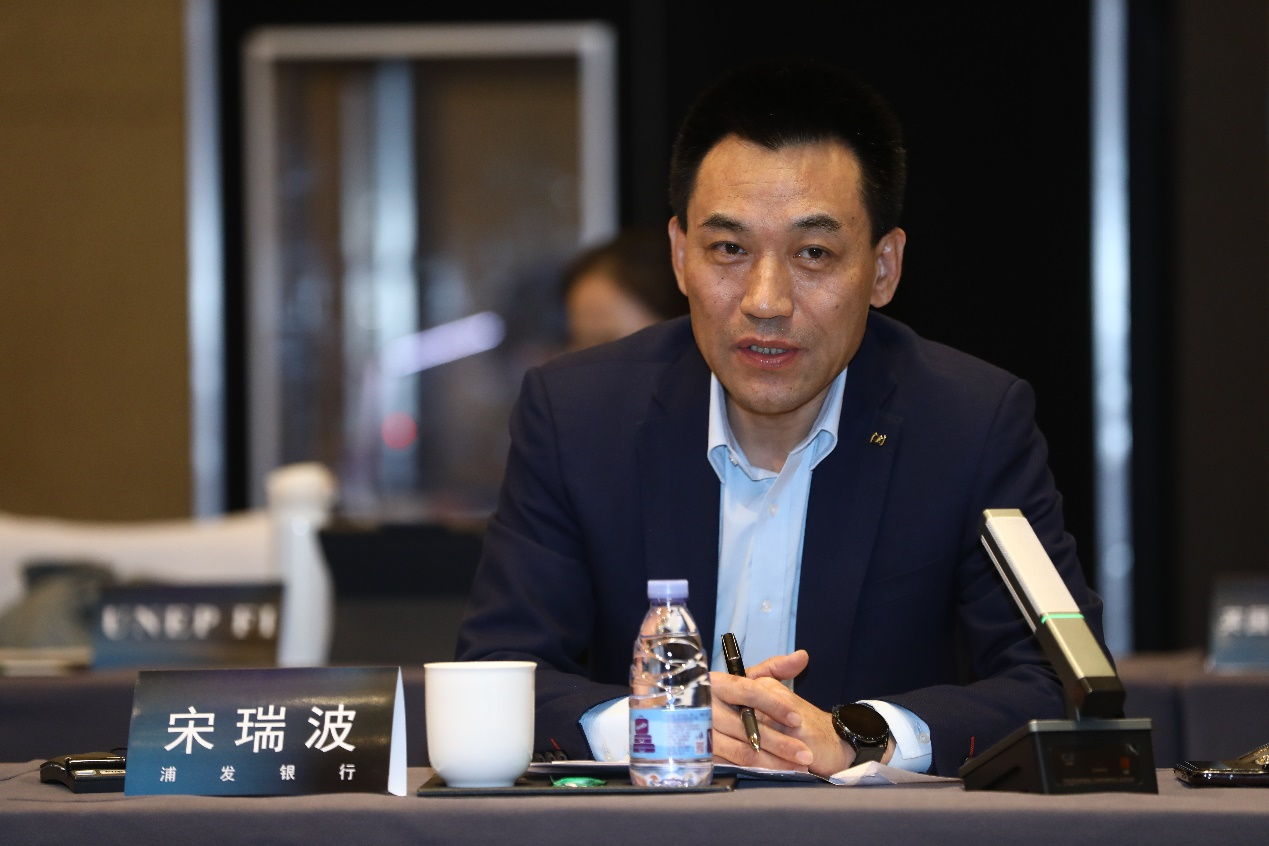
Mr. SONG Ruibo, Deputy General Manager of the Investment Banking Department (Green Finance Department), Shanghai Pudong Development Bank, shared that the bank has been deeply engaged in green finance since 2006 and began participating in the development of transition finance standards in 2021.
Drawing from SPD Bank’s experience in both green and transition finance, Mr. Song emphasized that achieving commercial sustainability requires stronger carbon pricing signals and more effective market-based mechanisms. In particular, he highlighted the need to enhance data platform integration and improve infrastructure connectivity. He called for the establishment of a unified methodological framework to guide the coordination of diverse financial instruments in meeting the needs of various transitioning entities. He also advocated for greater alignment of investment and lending strategies, enhanced risk mitigation tools, and broader multi-stakeholder collaboration.
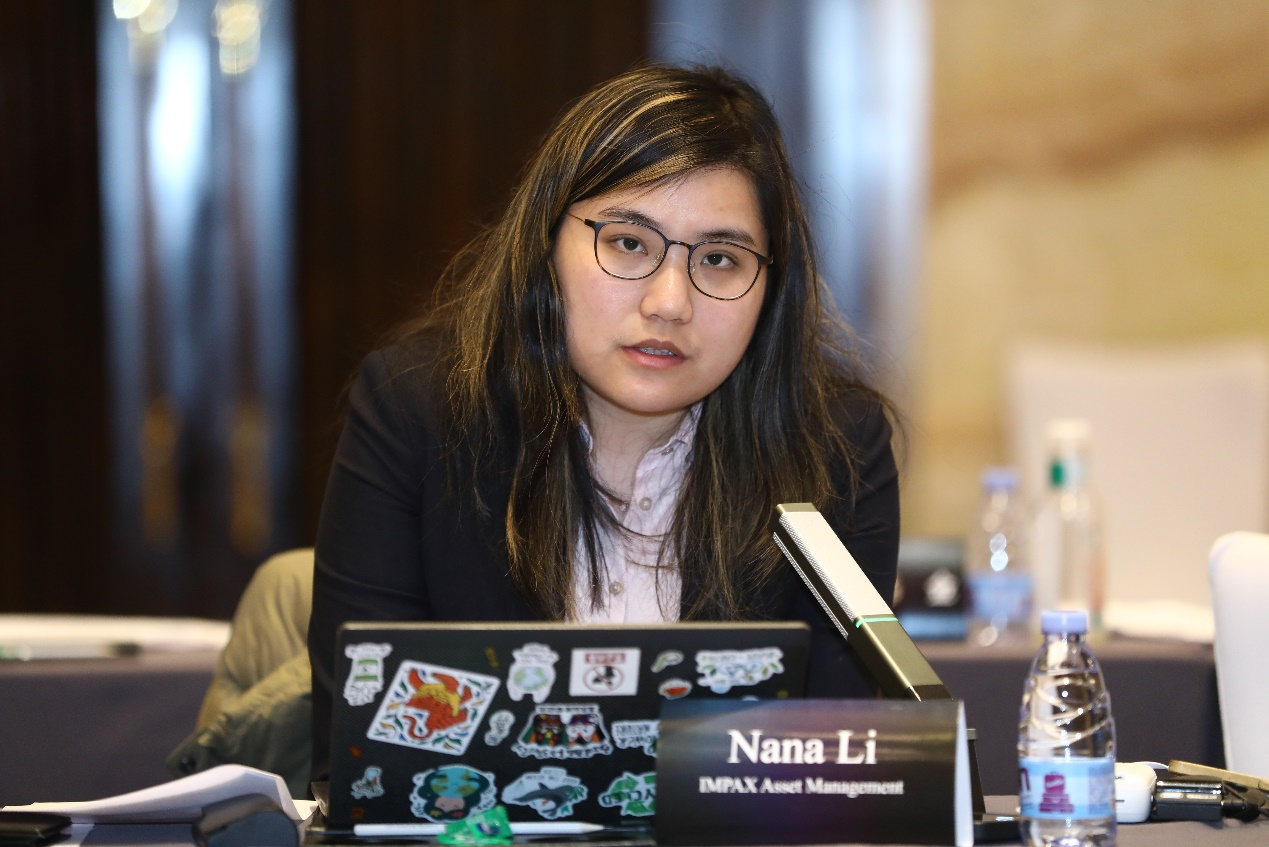
Ms. Nana Li, Head of Sustainability & ESG, Asia-Pacific at Impax Asset Management, shared that as a long-standing sustainability-focused asset manager, Impax’s core strategy centers on identifying companies poised to benefit from the economic transition. This is achieved through a proprietary classification and scoring system, followed by direct post-investment engagement to support improvements in corporate disclosure and operational management.
She noted that small and medium-sized enterprises (SMEs) often face challenges due to limited data availability. Investors can play a key role in helping these companies by sharing best practices and facilitating peer learning. As a member institution of CCEI, Impax also looks forward to further collaboration and dialogue with corporates and other investors through the CCEI platform.
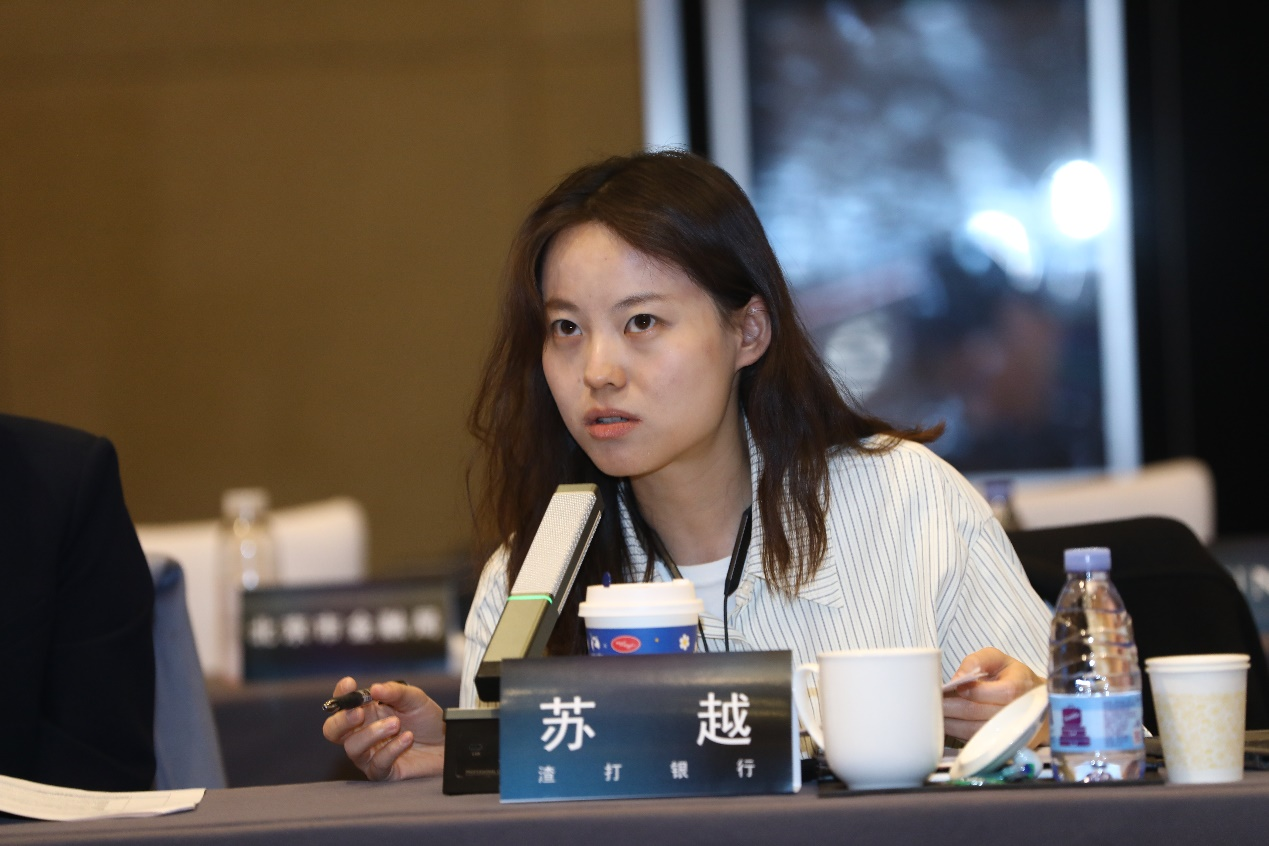
Ms. SU Yue, Head of Sustainable Finance for North China at Standard Chartered Bank (China) Limited, shared several representative transition finance cases from high-emission sectors such as steel, cement, and agriculture. She emphasized that banks should not only establish their own net-zero pathways but also play an active role in encouraging clients to disclose emissions and set transition targets.
Ms. Su pointed out that many Chinese enterprises currently show limited motivation, partly due to the absence of effective incentive mechanisms. She recommended a balanced policy approach combining both "carrots and sticks" and called on the working group to advocate for regulators to provide clearer guidance on target-setting for corporates.
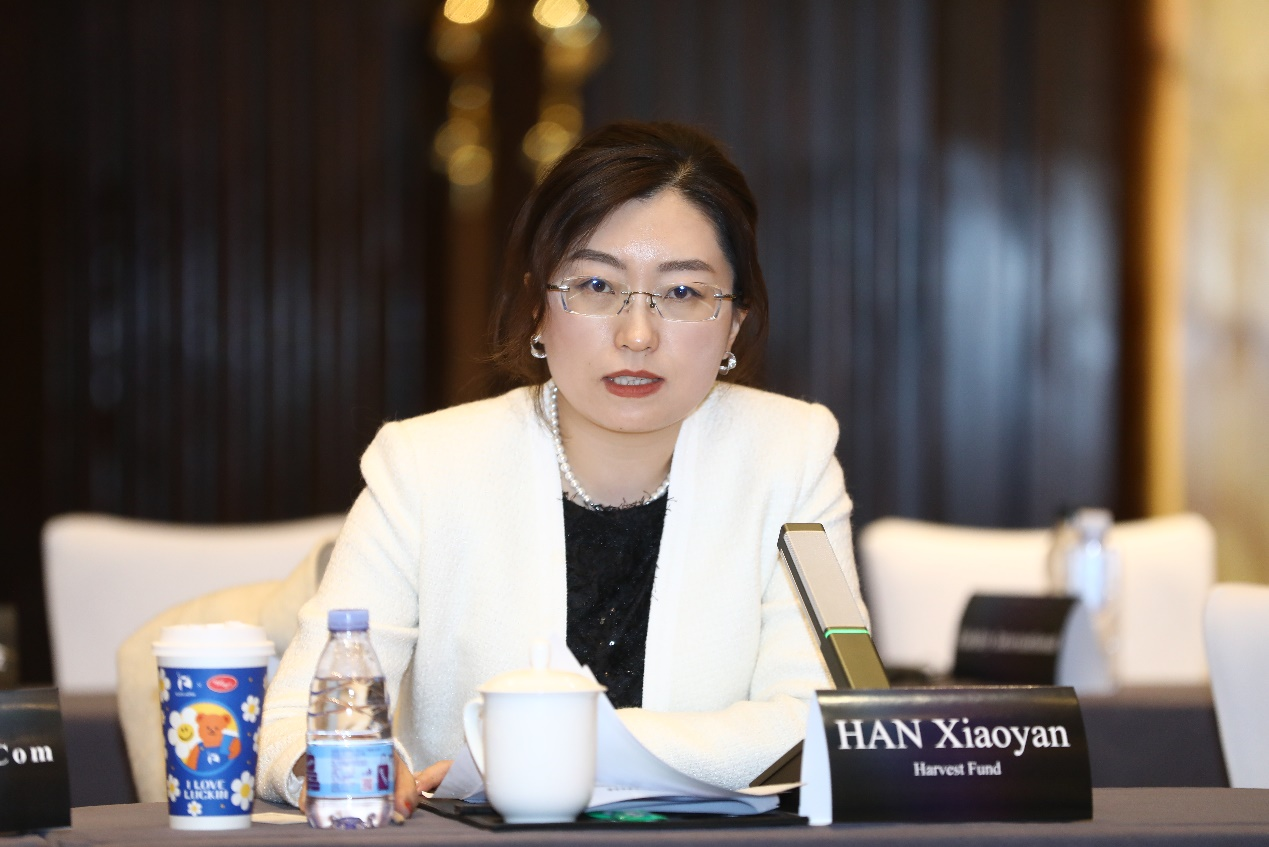
Ms. HAN Xiaoyan, Head of ESG Research and Investment at Harvest Fund Management, shared that the firm is developing a corporate transition capability assessment system to enhance its ability to identify and formulate investment strategies for high-carbon industries. In parallel, Harvest is exploring the integration of strategic design and AI-powered data tools.
She highlighted four major challenges currently facing the field: difficulty in identifying credible transition entities, maturity mismatches, high investment risks, and a shortage of qualified talent. To address these, Ms. Han recommended promoting innovation in equity-based products, establishing mechanisms to attract patient capital, and strengthening coordination on cross-border investment and standard alignment.
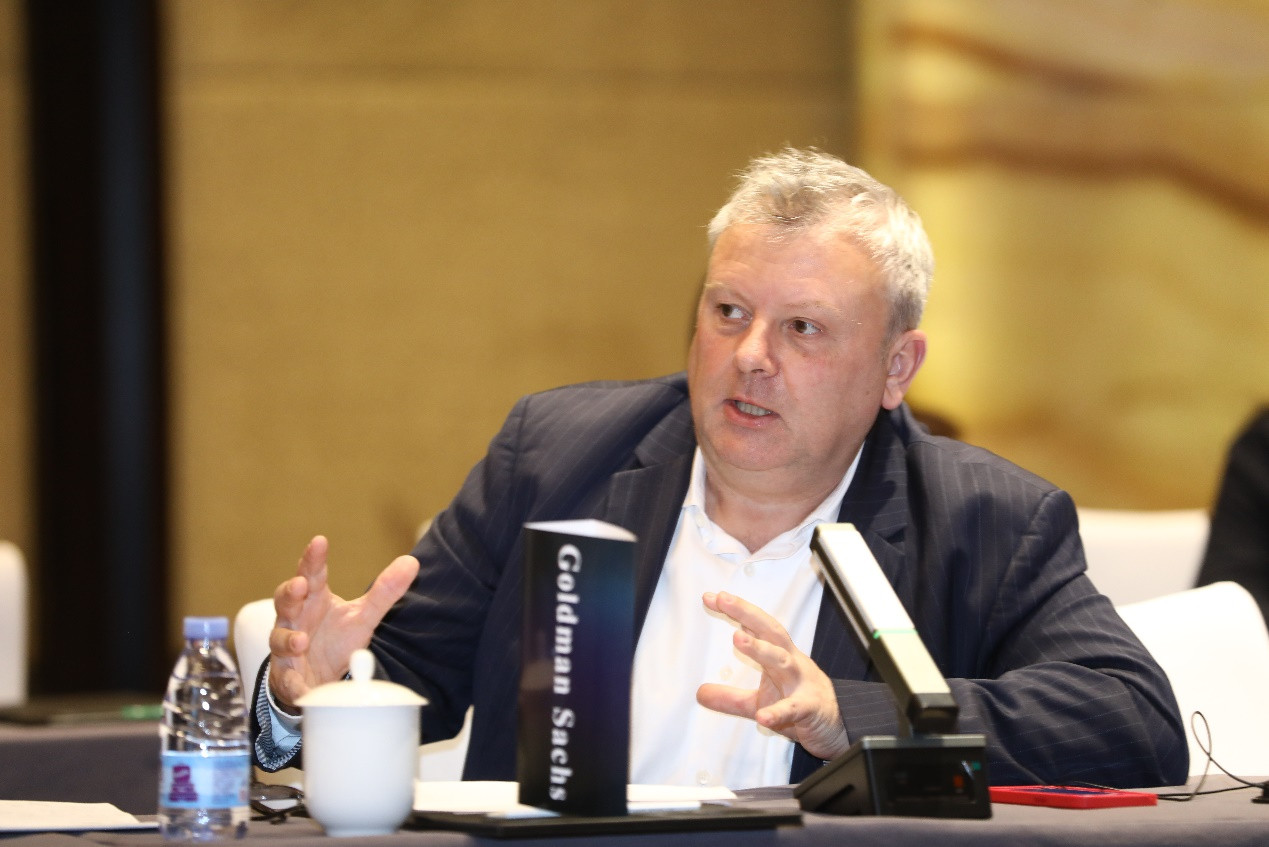
Stewart James, Asia Pacific Co-Head of the Office of Government and Regulatory Affairs at Goldman Sachs, highly recognized China’s progress in transition finance practices. He noted that the asset management industry has traditionally favored divesting from high-carbon assets rather than supporting their transition. Looking ahead, he emphasized the need to develop financial products targeting “transitioning enterprises” and to promote international standard alignment. He suggested that China and the UK could work towards a unified framework or shared understanding, enabling investment activities in one country to be recognized as a “contribution” to the transition pathway of the other. This, he noted, would help unlock cross-border capital flows and strengthen regulatory dialogue.
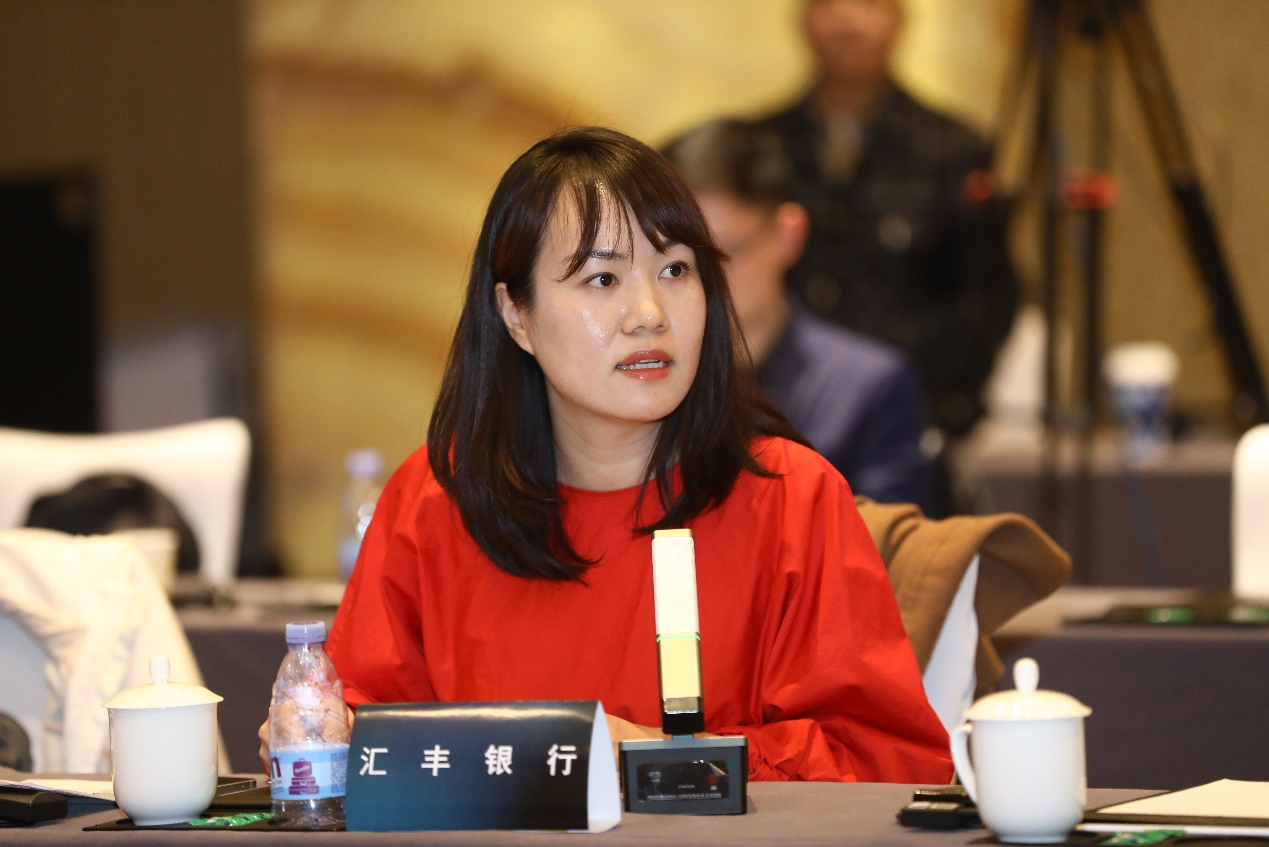
Ms. YUAN Yuan, Director of Climate Affairs in the Sustainable Development Department at HSBC Bank (China) Limited, pointed out that one of the key bottlenecks hindering the scaling up of transition finance is the difficulty in effectively passing through transition costs and green product premiums across the value chain.
She suggested that financial institutions should take a proactive role in identifying opportunities for coordinated transition among upstream and downstream clients. In parallel, institutional investors should exercise responsible stewardship to encourage downstream enterprises to adopt green procurement practices. Additionally, she advocated for expanding green public procurement to create clear demand signals for green industries and promote the formation of a closed-loop transition ecosystem.
Mr. CHENG Lin concluded the panel discussion by thanking all participants for their active contributions. He summarized that there is strong potential for deepened UK-China collaboration across a wide range of areas, including case study exchange, capacity building, product innovation, tool development and client enablement, regulatory practices, transition standards and target-setting, as well as supply chain transition.
He provided a synthesis of the key viewpoints shared by the panelists and their recommendations for the future direction of the working group. Mr. Cheng called for continued consensus-building, the advancement of pilot initiatives, and the delivery of actionable outcomes. He welcomed all stakeholders to remain engaged and to contribute ongoing feedback to support the success of the UK-China Transition Finance Workstream.
/Closing Remark/

Mr. ZHAO Lijian delivered the closing remark of the seminar. He noted that the discussions throughout the event have further deepened the shared understanding of the critical role and vast potential of transition finance in addressing climate change and advancing green and low-carbon transition both in China and globally.
He acknowledged that key challenges—such as the lack of unified standards, insufficient incentives, and incomplete data systems—remain pressing issues, and emphasized the need for strengthened cooperation and mutual learning between China and the UK.
Mr. Zhao stated that this seminar has laid a solid foundation for the establishment of the UK-China Transition Finance Workstream. We will continue to incorporate the valuable insights and suggestions offered by participants, and work toward promoting and strengthening the cooperation mechanism. These efforts aim to support the high-quality development of a robust bilateral transition finance ecosystem.
With that, the 2025 UK-China Transition Finance Seminar successfully concluded.


